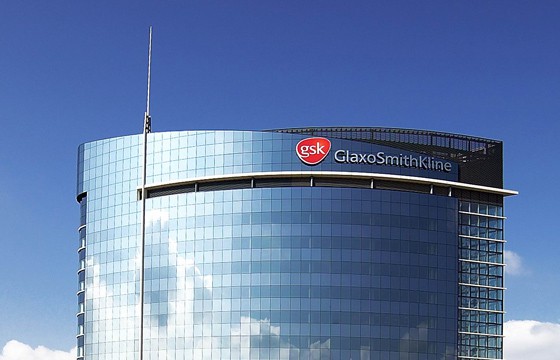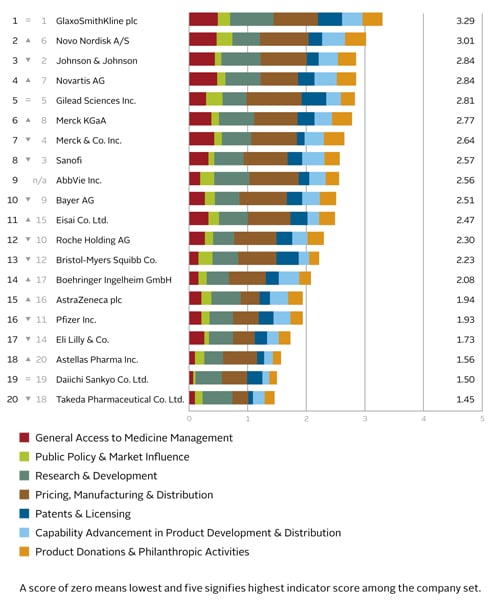
Big pharma companies are making greater efforts to improve access to medicines in the developing world, but corruption and intellectual property (IP) issues are areas of concern, says a new report.
The biannual Access To Medicines Index (ATMI) – which is funded by the Bill & Melinda Gates Foundation and the UK and Dutch governments – puts GlaxoSmithKline at the top of its rankings in 2014 for the fourth time, followed by Novo Nordisk and Johnson & Johnson.
At the other end of the scale – which includes 20 big pharma companies – are Japanese drugmakers Takeda, Daiichi and Astellas.
The Access to Medicines Index 2014

“In recent years, significant milestones for improving access to medicine have been achieved, including important new drugs for TB and hepatitis C, and a global drive to tackle neglected tropical diseases,” commented ATMI founder and chief executive Wim Leereveld.
However, while it is clear that pharma companies have a role to play in improving access “there is still no sustainable model for ensuring the poorest patients have access to the medicine they need,” he added.
Among the positive actions taken by companies is the tailoring of drug prices to take into account socioeconomic factors within countries, alongside a progressive increase in the number of compounds in the pipeline tackling diseases affecting developing countries to 327 at last count.
Moreover, more companies are experimenting with innovative access-oriented business models.
For example, Merck & Co offers patients in 11 cities in India zero-interest loans for the purchase of one of its hepatitis medicines, while Novo Nordisk is making insulin products more accessible in India, Nigeria, Ghana and Kenya by identifying ways to integrate diagnosis, treatment and control in local communities, says the report.
Factors letting the industry down include failings in ethical behaviour; 18 companies in the analysis period paid fines or settlements for corruption, dubious marketing practices or breaches of competition law. It is notable that GSK’s recent problems in China – which resulted in a hefty fine – lay outside the timeframe of the latest report.
Meanwhile, companies remain “conservative” in their disclosure of where patents are active and when they will expire, notes the ATMI report. Not making this type of information readily available can delay the entry of lower-priced generics, it adds.
In terms of R&D, the picture is somewhat piecemeal, with no company excelling across the board. For instance, Novartis has the largest pipeline of products for developing countries, Sanofi has the most relevant products already on the market and J&J dominates when it comes to developing child-friendly medicine.
“There is still much to do [but] I see that companies are willing to learn from each other and to share their experiences,” said Leereveld.
“That gives me confidence that we will continue to see progress in the years to come.”




